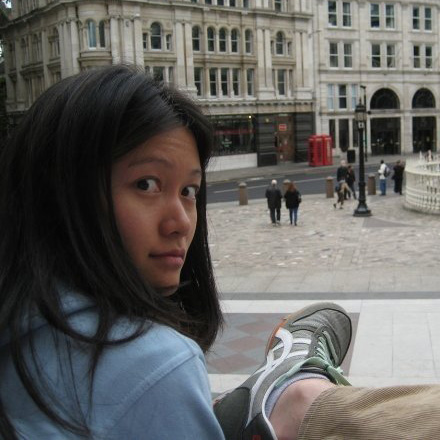 Tweet
Tweet
Featured on Apr 29, 2011
Mariya Yao
"Don't f*ck it up! - Ru Paul"
Bio:
Nerdy generalist and maker of lovable apps.
- Title: Parallel Entrepreneur
- Age: 25
- Location: SoHo
- Contact: about.me
You mention in your twitter profile that one of the things that you are obsessed with is adventure travel. What are some of your favorite places to visit? Where do you want to go next?
Haha, "adventure travel" might be a misappropriation of terms. Usually it calls up imagery of some hardcore dude biking over treacherous-looking glaciers in some remote region of Patagonia. While that sort of thing might tempt me once in a while, what I'm more into is urban exploration, which Wikipedia formally defines as "the examination of the normally unseen or off-limits parts of urban areas or industrial facilities" and normal people call "sneaking into places you don't belong". Targets of exploration are usually abandoned or emptied buildings, like the dilapidated Renwick Smallpox Hospital on Roosevelt Island and the original City Hall subway station which was closed in 1945. You can get a peek of the latter if you stay on the downtown 6 train as it loops to the uptown track at Brooklyn Bridge / City Hall.
A few friends of mine once explored an abandoned castle on an island upstate. They had to paddle a kayak across some pretty treacherous water to get there. This is definitely next on my to-do list.
Is it difficult to balance between building an application, Bloomsie, and running a mobile design and development agency? How do you determine how to allocate your time between the two?
I'm a big believer of spending 10-20% of your time working on problems that are related to your strategic goals but outside your immediate circle of concern. This is pretty tough for a startup because you're always pressured to move as fast as you can, but the benefits of slowing down include expanding your domain expertise and sense of macro trends while reducing your risk for tunnel vision and repetitive thinking. You also keep things interesting with the variety.
Here are some of my guidelines for when to take on side consulting gigs:
1) Does the job give me the opportunity to learn or develop a skillset that I'm going to need anyway for my startup? In my case, I've been taking on mobile UX and game design freelance gigs in order to better understand what works and doesn't work for mobile usability and engagement. There's no better way to learn than through active problem solving when your butt is on the line.
2) Does the job expose me to people that might be helpful for my startup in the future? The right relationships make or break a startup, so we'd consider taking on jobs slightly outside the scope of our startup if we think we'll meet future investors or employees through the gig.
3) Is the client a good fit? Picking good clients - i.e. people who share your vision, respect your expertise and your time, view you as a real partner, communicate well, pay on time, etc - is a key skill for any consultant.
4) Can the job be compartmentalized? Startups are hard enough to run that losing focus to consulting gigs can be a death blow for some of them. The way my partner and I try to operate is we block off 1-2 days a week where we exclusively work on side projects so we separate our freelance and startup mentalities.
You’re one of the co-founders of Founders Block, an online community for early-stage entrepreneurs to share their stories and support each other. How did the original founding team come together? If you could only share one piece of content from the site with someone, what would it be?
Gary and I were both frustrated that major media outlets cover just the glossy side of startups and leave out the critical early struggles behind all the apparent successes. We felt this skewed the aspiring entrepreneur's expectations about what founding a company is really like. We wanted to share our stories from the frontlines in an educational format in order to be more helpful to fellow entrepreneurs. Gary brought on Bob and Brian who shared our vision and the rest, as they say, is history.
Tough choice picking just one article, but I'd have to say that my conversation with Steve Blank over common misconceptions in customer development corrected many of my own misunderstandings of the whole lean startup / customer development philosophy. Being "lean" is hot these days, but many entrepreneurs can't tell the difference between a minimum viable product and a minimum desirable product. They regurgitate theory without understanding the strategic goals of what they're doing and how to turn sensible theories into effective practice.